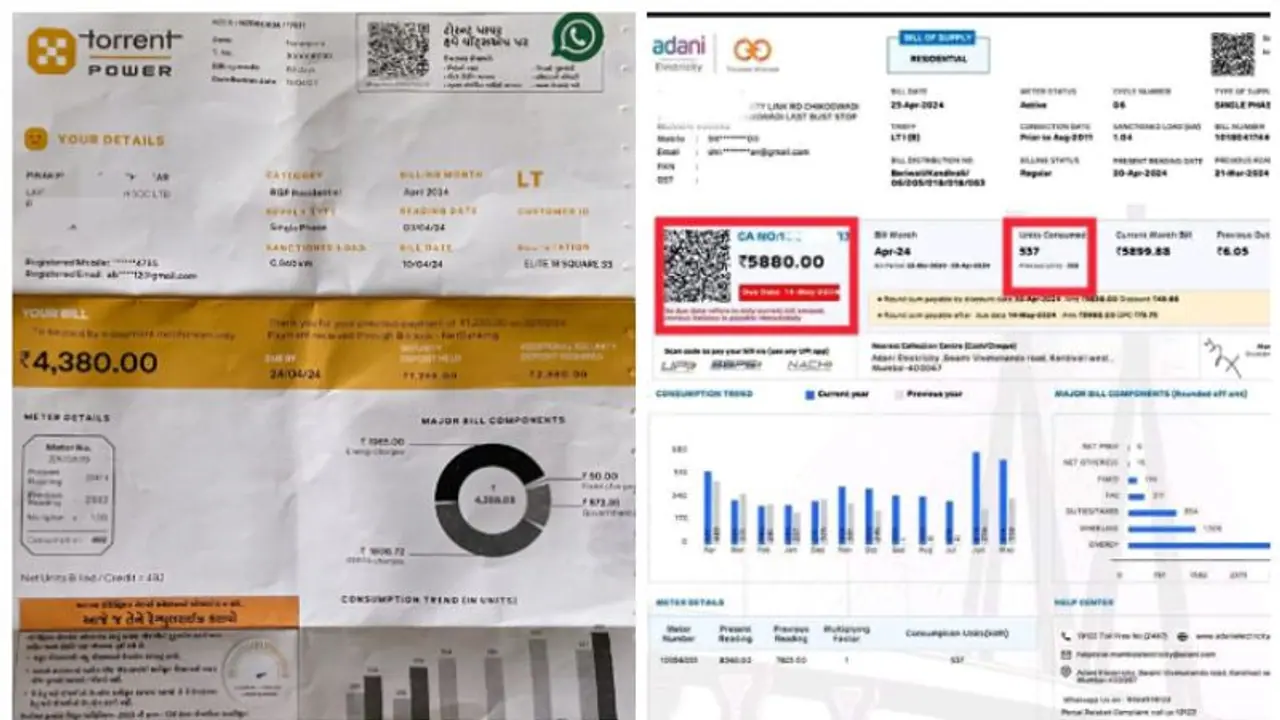KSEB compares electricity bills from different states to dispel misinformation about Kerala having the highest electricity tariffs and the need for privatization. It highlights bills from Ahmedabad, Gujarat (supplied by Torrent Power), and Mumbai (supplied by Adani Power) versus Kerala (supplied by KSEB).
Thiruvananthapuram: Kerala State Electricity Board (KSEB) refutes the claim that Kerala's electricity tariff is the highest in the country, dismissing it as false propaganda. Rumors are circulating on social media suggesting that privatization is the solution, but KSEB asserts that these claims are entirely baseless. To support their argument, KSEB presents two electricity bills from different states as examples.

According to KSEB, "Electricity in Ahmedabad, Gujarat, is supplied by Torrent Power, a private company. A bi-monthly bill for a single-phase household customer shows a charge of Rs 4380 for 492 units of usage. In contrast, using the KSEB website's bill calculator, the cost for the same usage in Kerala is calculated to be 3326 rupees. This results in a difference of Rs 1054, clearly indicating that the electricity tariff in Gujarat is over a thousand rupees higher than in Kerala."
"Let's examine another example. In Mumbai, Adani Power supplies electricity. The image shows a monthly bill for a single-phase household customer, with a usage of 537 units, amounting to Rs 5880. For the same usage in Kerala, the amount payable is calculated to be Rs 5567, resulting in a savings of Rs 313 in Kerala."
The fact is that Rajasthan, Uttarakhand, Gujarat, Maharashtra, West Bengal, Sikkim, Meghalaya and many other states have higher electricity rates than Kerala.
"If you look closely at the bill issued by Torrent Power in Gujarat, you will see that 1800+ rupees have been charged in the name of FPPPA charges. FPPPA stands for "Fuel and Power Purchase Price Adjustment." It is calculated to pass on the difference in the purchase cost of electricity to the consumers in accordance with the increase in the cost of fuel and the cost of production," KSEB added.
